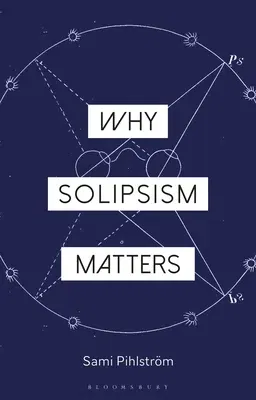Solipsism is one of the philosophical thesis or ideas that has generally
been regarded as highly implausible, or even crazy. The view that the
world is "my world" in the sense that nothing exists independently of my
mind, thought, and/or experience is, understandably, frowned up as a
genuine philosophical position. For this reason, solipsism might be
regarded as an example of a philosophical position that does not
"matter" at all. It does not seem to play any role in our serious
attempts to understand the world and ourselves. However, by arguing that
solipsism does matter, after all, Why Solipsism Matters more
generally demonstrates that philosophy, even when dealing with highly
counterintuitive and "crazy" ideas, may matter in surprising, unexpected
ways. It will be shown that the challenge of solipsism should make us
rethink fundamental assumptions concerning subjectivity, objectivity,
realism vs. idealism, relativism, as well as key topics such as ethical
responsibility - that is, our ethical relations to other human beings -
and death and mortality.
Why Solipsism Matters is not only an historical review of the origins
and development of the concept of solipsism and a exploration of some of
its key philosophers (Kant and Wittgenstein to name but a few) but it
develops an entirely new account of the idea. One which takes seriously
the global, socially networked world in which we live in which the very
real ramifications of solipsism - including narcissism - can be felt.

